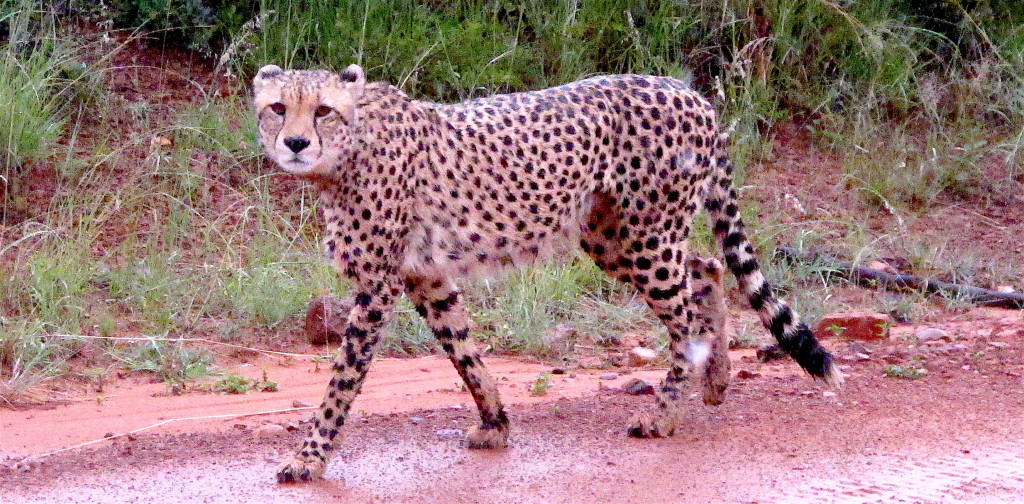When mystical veils of polar lights are wafting across northern skies in unknown shades of green, observers from near and far are eager to come and watch the stunning spectacle. A great many people have the Aurora Borealis on their bucket list of things to do at least once in a lifetime. Witnessing the awesome natural miracle when in Iceland can happen in the most comfortable of ways: by dreamily lying on one’s back underneath the transparent skin of an unconventional „hotel“ room in the shape of a bubble. Glamping under a canopy of stars means freedom and shelter at the same time.
Posts about Wildlife
Scotland: Is the Wild Haggis fact or fiction?
Bringing down the rare Haggis scotticus – the Wild Haggis – to secure the next traditional Haggis meal – requires utmost agility and perseverance by human persecutors equipped with equally-measured lower extremities. One must know that Wild Haggii vary in characteristics and that it is two different genera who roam steep and rough highlandish terrain. In both cases the legs on their left are different in length from the ones on their right – and vice versa. Either way, their unusual physique allows them to swiftly climb and scuttle around their regular habitat unperturbed by topographical challenges, albeit in one single direction only: Wild Haggii featuring longer legs on the left, move around clockwise, whereas the ones relying on extended limbs on their right, will logically proceed counter-clockwise. A refined GPS system usually prevents painful head-on collisions and all Haggii, limbed in whichever fashion, are said to lead a fairly peaceful coexistence.
Limpopo: About rockefants, soaked cats and kidnapped termites
Murphy’s law. Sometimes – no matter how much goodwill may have been invested into planning – things just don’t work out the way they should. Take a wildlife safari, for instance and imagine this scenario: At the ungodly hour of four-thirty in the morning, when it is still pitch dark outside, one’s proper physical system has not gained momentum yet, the game reserve is 90 minutes away from the hotel, vision is limited, the vehicle’s irritated GPS fabricates unfathomable directions once the smoothly paved stretch ends and we turn off-road. Rain is pouring (pouring!). Aboard a forlorn minibus a bunch of drowsy journalists are resting their exhausted frames against foggy window panes and limply jump out of their seats involuntarily each time the bus rattles into a pothole with a thud. Or conquers another especially mean hump. And another.
Saving America’s Mustangs
Madeleine Pickens is a businesswoman, animal welfare activist and philanthropist of European descent. When, in 2008, the Bureau of Land Management declared that the United States government considered euthanasia and/or the sale of more than 30,000 Wild Mustangs to slaughterhouses overseas, Madeleine resolved to establish a sanctuary for endangered native horses. A year later, Madelene testified before the United States House of Representatives Subcommittee on National Parks, Forests and Public Lands in support of H.R. 1018, the Restoring Our American Mustangs (ROAM) Act. After acquiring the sanctuary in North Eastern Nevada, she saved over 600 Mustangs from slaughter and endeavours to rescue and preserve the Wild Mustang have been an ongoing process. Also, until this day, the sanctuary’s survival relies on Madeleine’s charity foundation „Saving Americas Mustangs“, through which the funding for the Mustang Monument Eco-Resort and Preserve could be raised. A series of recurring obstacles had to be overcome before the resort could be run according to plan.
Saving America’s Mustangs is a not-for-profit organization accepting donations (tax-deductible).
TED Talk. Paul Greenberg: The four fish we are overeating
“Grinding Nemo”
Overfishing is only half of the story, says Paul Greenberg in his talk. The other half is about the boom in fish farming and aquaculture, which – over the past few years – has started to exceed the amount of wild fish produced. In America and a great part of the Western World, shrimp is by far the most consumed seafood. 5, 10, 15 pounds of wild fish – deemed trash fish by the fishing industry – are killed to bring one pound of shrimp to the market. Filmmaker Mark Benjamin called the phenomenon “Grinding Nemo“: Shrimp dredgers vacuum up a huge amount of by-catch that is then minced and turned into shrimp feed. An „ecosystem literally eating itself and spitting out shrimp“. A recent study has found that dredging for shrimp represents one of the most carbon-intensive ways of fishing there is.





